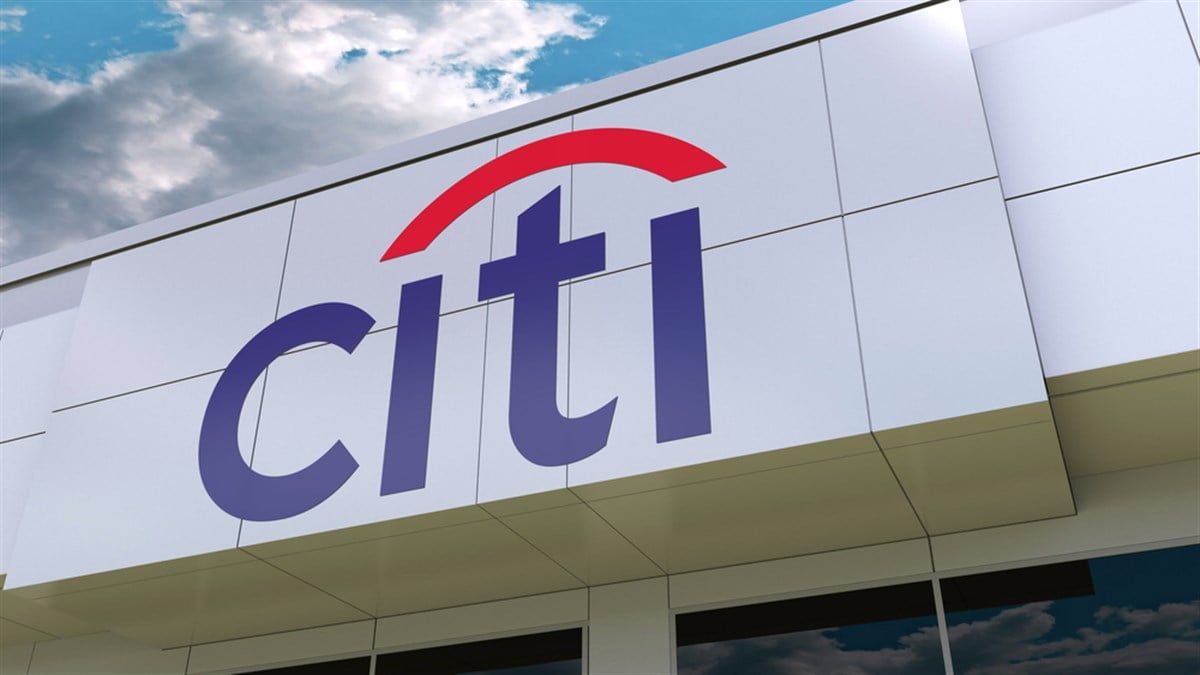Citigroup Slashes 20,000 Jobs: Restructuring or Retreat? Citigroup is cutting jobs under CEO Jane Fraser's leadership to boost efficiency and manage financial challenges while considering the human impact.
This story originally appeared on MarketBeat

In a strategic pivot, Citigroup (NYSE: C), the third-largest U.S. bank by assets, has embarked on a significant restructuring initiative. This bold move involves dramatically reducing its workforce by 20,000 employees over the next two years. This move is signaling a 10% contraction of its global workforce and this decision marks a critical juncture in Citigroup's history. This strategic pivot reflects a deep commitment to revitalizing the company's operational efficiency and boosting its financial performance.
Driving forces behind Citigroup's restructuring
The catalyst behind Citigroup's decision to cut its workforce is complicated. The strategy shift is rooted in a series of financial and operational challenges. The bank's recent performance paints a grim picture, with a $1.8 billion loss in the fourth quarter of 2023. This loss is coupled with a 3% year-on-year revenue decline. These profitability figures are in stark contrast with the company's peers in the banking sector, underlining inefficiencies and strategic missteps within Citibank. This restructuring, therefore, aims to streamline operations, eliminate redundancies, and refocus on core business areas, with anticipated cost savings of up to $2.5 billion.
Dissecting Citigroup's workforce reduction
This workforce reduction, which is slated to unfold over the next two years, is a calculated strategy. Citigroup is targeting a range of roles across various levels, indicating an overhaul that touches every corner of the organization. The bank has already initiated a trimming of senior management roles, suggesting a top-down reshaping approach. Importantly, Citigroup is also focusing on the human aspect, pledging comprehensive severance and outplacement support to the affected employees.
Fraser navigates Citigroup's restructuring
CEO Jane Fraser is the architect of this ambitious overhaul. Fraser remains steadfast in her vision for Citigroup's future. Despite acknowledging the disappointing recent performance in Citigroups financials, Fraser's strategy pivots towards a leaner, more focused operational model. The targeted approach aims to bolster efficiency, capitalize on growth opportunities, and shed non-core businesses. Fraser's leadership is pivotal in steering Citigroup through this transformative period, with 2024 earmarked as a critical year for witnessing the fruits of these efforts.
A broader view of job cuts
Citigroup's workforce reduction reflects a larger industry-wide phenomenon. Other major banks like Wells Fargo (NYSE: WFC) and Goldman Sachs (NYSE: GS) have embarked on similar paths, signaling a sector-wide shift towards operational efficiency and digital transformation. This trend points to a changing banking and fintech landscape, where automation and streamlined operations are becoming increasingly prevalent.
Restructuring's promise and peril
The restructuring at Citigroup stands at a crossroads of opportunity and challenge. The promise of cost savings and improved market positioning is substantial, yet the execution of such a sweeping change is fraught with complexities. The bank's leadership is tasked with the delicate balance of achieving operational excellence while managing the human dimensions of the restructuring process. The success of this endeavor will not only shape Citigroup's future but also potentially set a precedent for the banking industry at large.
Navigating workforce reduction with care
Citigroup's workforce reduction is more than a strategic maneuver; it has a profound human dimension. The impact on 10% of its workforce is significant, necessitating a responsible and empathetic approach to layoffs. The bank's commitment to providing supportive measures for affected employees is crucial, underscoring the recognition of Citigroup's social and corporate responsibility.
Realigning for the future
This restructuring is part of a broader strategic realignment for Citigroup. By focusing on its core competencies and exiting non-core businesses, the bank aims to become more agile and competitive. This realignment is essential for Citigroup to adapt to the rapidly evolving financial landscape and meet the changing needs of its clients and shareholders.
Cost savings and efficiency gains
A key driver behind the workforce reduction is the pursuit of cost savings and efficiency gains. Citigroup's targeted $2.5 billion savings reflects a crucial step in improving its financial health and operational agility. These savings are expected to enhance the bank's profitability and investor appeal, a vital aspect of its overall strategy.
Technology and automation
Citigroup's restructuring also underscores the growing importance of technology and automation in the banking sector. The bank aims to stay ahead in a rapidly digitizing world by streamlining operations and integrating technological solutions. This focus on technology is not only a cost-saving measure but also a strategic move to position Citigroup at the forefront of the digital banking revolution.
Citigroup's decision to reduce its workforce by 20,000 is a significant milestone in its history. This move, while challenging, is driven by a clear vision for a more efficient, focused, and competitive future. The success of this transformative journey depends on effective execution, empathetic management of the human impact, and a clear focus on strategic realignment. As Citigroup embarks on this path, it sets a precedent for the banking industry, highlighting the delicate balance between financial imperatives and corporate responsibility. The road ahead is complex, but the potential rewards of a revitalized Citigroup are significant, not just for the bank itself but for its stakeholders and the broader financial world.









